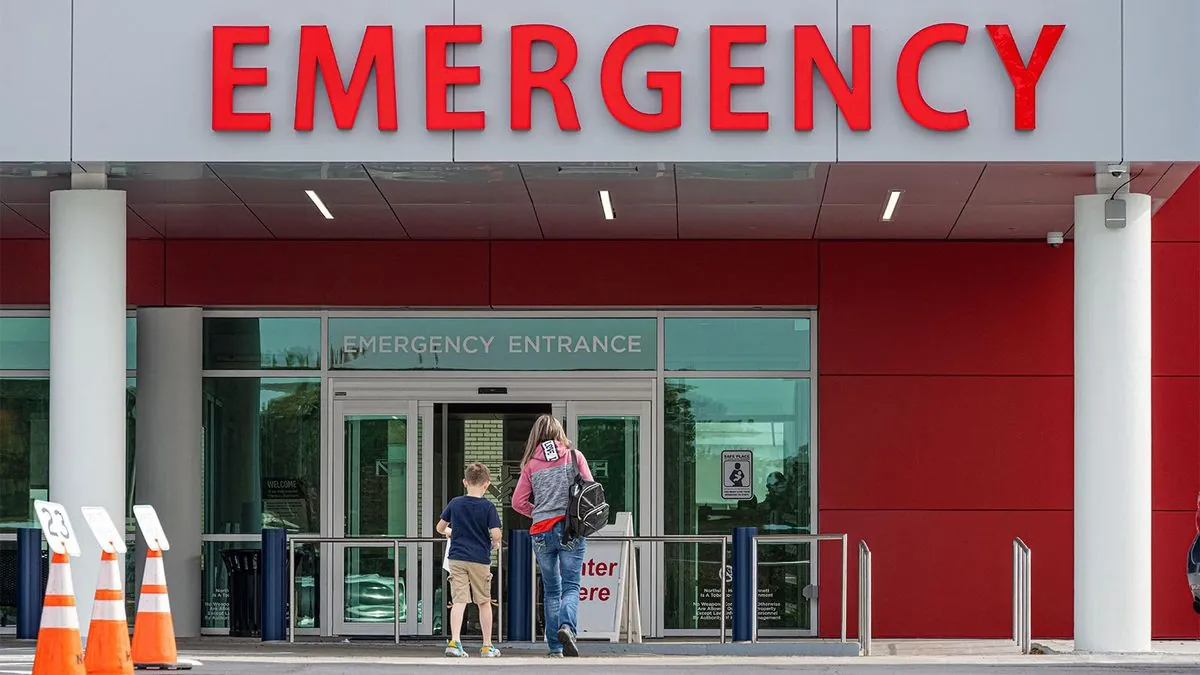Texas Hospitals Face Federal Probe Over Ectopic Pregnancy Care Denial
Two women file complaints against Texas hospitals for denying emergency abortions for ectopic pregnancies. The cases highlight ongoing conflicts between state abortion bans and federal emergency care laws.

Two women have initiated federal investigations into Texas hospitals for allegedly denying crucial medical care for ectopic pregnancies, shedding light on the ongoing uncertainties surrounding emergency abortions in states with strict abortion bans.
Kyleigh Thurman and Kelsie Norris-De La Cruz filed complaints with the U.S. Department of Health and Human Services (HHS) on August 6, 2024, accusing Ascension Seton Williamson Hospital in Round Rock and Texas Health Arlington Memorial Hospital in Arlington of violating the Emergency Medical Treatment and Active Labor Act (EMTALA).
Ectopic pregnancies, occurring in 1-2% of all pregnancies, are potentially life-threatening conditions where a fertilized egg implants outside the uterus, typically in the fallopian tube. These pregnancies are non-viable and can lead to fatal complications if left untreated. Ectopic pregnancies are the leading cause of maternal death in the first trimester, emphasizing the critical need for prompt medical intervention.
Despite Texas law permitting abortions in cases of ectopic pregnancy, both women allege they were denied timely care. Thurman's complaint states that in February 2023, Ascension hospital turned her away despite a confirmed ectopic pregnancy diagnosis. The delayed treatment resulted in a ruptured fallopian tube, requiring emergency surgery and potentially impacting her future fertility.
Similarly, Norris-De La Cruz claims Texas Health Arlington discharged her with an untreated ectopic pregnancy. She eventually received emergency surgery at another facility, but the delay necessitated the removal of a fallopian tube.

These cases highlight the complex interplay between state abortion bans and federal emergency care laws. EMTALA, enacted in 1986, requires hospitals to stabilize patients with emergency medical conditions. However, the implementation of this law in states with strict abortion bans remains contentious.
The legal landscape surrounding abortion rights in the United States has undergone significant changes since the Supreme Court's decision in June 2022 to overturn Roe v. Wade. As of 2024, approximately 26 states have implemented laws that severely restrict or ban abortions, creating a patchwork of regulations across the country.
Beth Brinkmann, Senior Director of U.S. Litigation at the Center for Reproductive Rights, emphasized the dangers posed by abortion bans, stating:
The complaints filed by Thurman and Norris-De La Cruz are part of a growing trend of legal challenges to abortion restrictions. In July 2024, a Kansas woman filed what appears to be the first federal lawsuit against a hospital for refusing to provide an emergency abortion.
As the medical community grapples with these legal uncertainties, it's worth noting that ectopic pregnancies can be detected as early as 5-6 weeks through ultrasound. The risk increases with age, peaking in women aged 35-44. Treatment options include medication (methotrexate) or surgery, with fallopian tube removal (salpingectomy) being a common procedure for ruptured ectopic pregnancies.
The outcome of these complaints and ongoing legal challenges will likely shape the future of emergency reproductive care in states with strict abortion laws. As the debate continues, the health and lives of countless women hang in the balance.


































